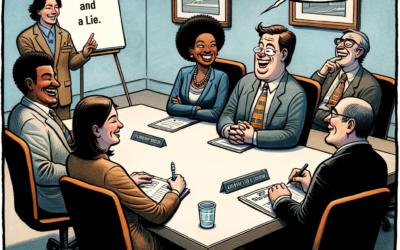In his book, Thank You for Being Late: An Optimist’s Guide to Thriving in the Age of Accelerations, Thomas L. Friedman observes that three forces are combining to change our world at unprecedented rates: the exponential growth of computing power and access (Moore’s law), the widespread and connected effect of globalization, and the ever increasing pace of climate change. Together, these three forces are producing a supernova of change to our planet and life on it. This acceleration will change just about everything that we think of as “normal” work in the coming months and years. It’s a thrilling and frightening proposition, depending on your place in the working world. And though we’re a few years out from replacing most frontline workers with computers, as leaders and managers, the place we’re headed is already indicating where you should put your attention.
Friedman believes we should focus on what computers can’t do. “For all the jobs that machines can do now–whether performing surgery, driving cars or serving food–they still lack one distinctly human trait. They have no social skills,” argues Claire Cain Miller in a New York Times piece ( “Why What You Learned in Preschool Is Crucial at Work”) cited by Friedman.
Cain Miller points to new research on job growth which suggests that increased automation will require humans to focus more on so-called “soft skills” in the workplace like empathy, communication, and flexibility. People in the most valuable professions will increasingly need to be able to work well with other humans: reading their cues, and adjusting behavior to meet the needs of their coworkers and clients. These are skills that computers are inherently bad at, and we need people who can work together to solve the problems of our communities and teams. In the future we will have to give even more consideration to soft-skills assessments in the hiring of new employees, but more immediately we need to retrain our current workforce teams so they be more productive AND creative.
What does this mean for you and your team currently? The gap between true productivity and competitive success in the marketplace will increasingly be dependent on the ability of your people to work well with others by demonstrating empathy and respect in the workplace. You’ve likely been considering the merits of soft skills since your first days in a leadership role. But have you been considering this as the MOST important skill set to address? It may be time to reframe priorities. And how you model these leadership skills with your teams is worth reviewing as well.
High social skills and the corresponding strong connection between coworkers (and clients!) leads to higher engagement. Gallup’s latest data says that in average companies the percentage of engaged employees is 33% vs. 70% for top companies. High engagement is both essential and possible. But we can’t rely on business results and pep talks to improve matters. We actually need to move the needle by helping people learn how to talk to each other.
Some things to look for in your teams that might suggest a need for your attention:
- How do we talk “about” people outside our team (or even someone who is no longer on the team) when they aren’t around? Teams that gossip (“Remember Sally? What a nightmare!”) suggest a real lack of internal trust since these kinds of conversations often lead to the internal question, “I wonder what people will say about ME when I’m gone.” Brene Brown, in her research, calls this particular form of pernicious gossip, “Common enemy intimacy,” and it signals a stressful, callous culture–one where people elevate themselves by denigrating others.
- Conflict handling. Conflict is a necessary part of innovation and progress. We have to feel safe enough to disagree and therefore push on each others’ ideas. So often on teams, one of these two opposite problems crops up:
- Someone (or a set of someones) dominates the discussion and conflict and is constantly using unhealthy conflict habits (bullying, badgering, constant repeating, lack of real listening).
- We avoid conflict at all cost–in favor of getting along. This can look like “good social skills” and healthy understanding or compromise, but is really just a lack of true collaboration.
We avoid conflict at all cost–in favor of getting along. This can look like “good social skills” and healthy understanding or compromise, but is really just a lack of true collaboration.
Great teams find a way to speak respectfully not just because it’s the “right thing to do” but because they are always looking for ways to build trust in each other. This trust, when banked, can lead to more productive conflict, less toxic situations, and higher engagement. That’s where real creativity can thrive. Contact us if you’d like to talk more about the importance of soft skills to your team’s performance and how we can help.
By: Gary Cohen



